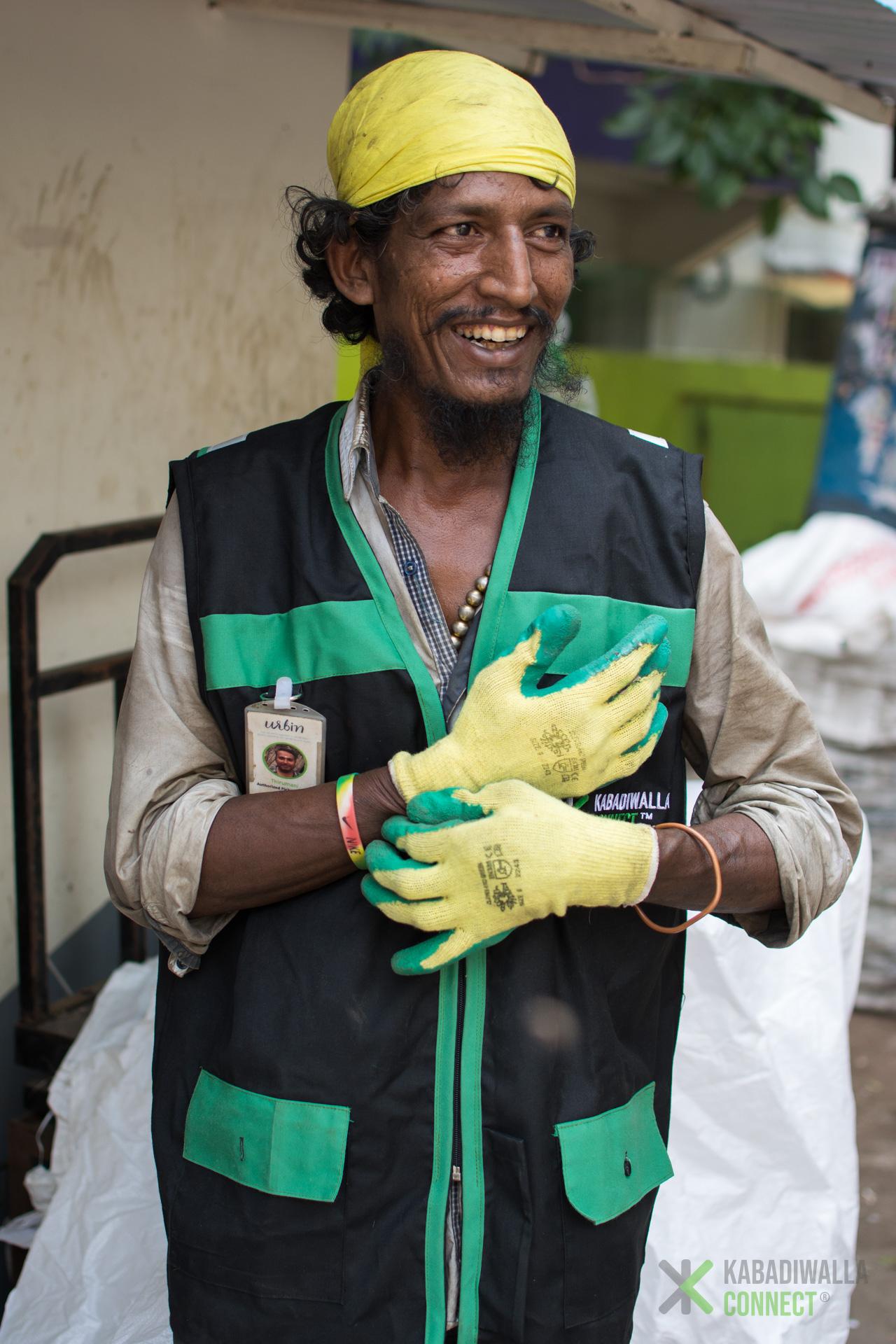
Solid waste management remains a pervasive challenge within urban spaces worldwide, inadequate collection, aggregation, and processing systems exacerbate environmental degradation and generate public health risks that further play into dynamics of social inequality –it is the urban poor that are worse affected across all geographies. Lower-middle income countries collect about 48 percent of waste in cities, but this proportion drops drastically to 26 percent outside of urban areas (World Bank). Though there has been progress in terms of improving collection coverage in many low- and middle-income countries, the challenges of waste management persist in the face of rapid urbanisation, conspicuous consumption, and the escalating volume of waste generated. Policymakers and practitioners are faced with developing sustainable and cost-effective strategies where resource constraints and the need for economic growth entangle to form a gordian knot of dilemmas and conflicts of interest. These complexities that come into play are particularly pronounced in India, where rapid industrialisation and (informal) urbanisation, and forms of prejudice add unique layers of intricacy to the issue.
Communities and spaces on the margins of formality easily fall through the prevalent cracks of existing systems, making the balancing act between environmental stewardship and economic development more intricate. Where the state and formal channels fall short, informal channels and systems prevail, in this case informal waste pickers fill the void acting as primary links in the waste management chain. Despite their critical role, there is a notable lack of comprehensive data quantifying the considerable number of individuals reliant on waste picking as their primary source of income. ICFI interviewed Kabadiwalla Connect, an award-winning, data-centric social enterprise from Chennai. Founded in 2016 and named after the local term for scrap aggregator shops, this initiative recognises the power and centrality of informal and decentralised systems. Alongside reducing waste, it aims to generate accountability and traceability from within and support better working conditions and security for waste pickers.
Siddarth Hande has a multidisciplinary background in sustainability management, zoology, urban governance, and the use of technology -specifically GIS- as a means of merging these fields. Toke Sabroe is an advisor and manager with extensive international experience working with digital technologies, sustainable innovation, and circular economy.
The Beginnings of Kabadiwalla Connect and Waste Management in Chennai
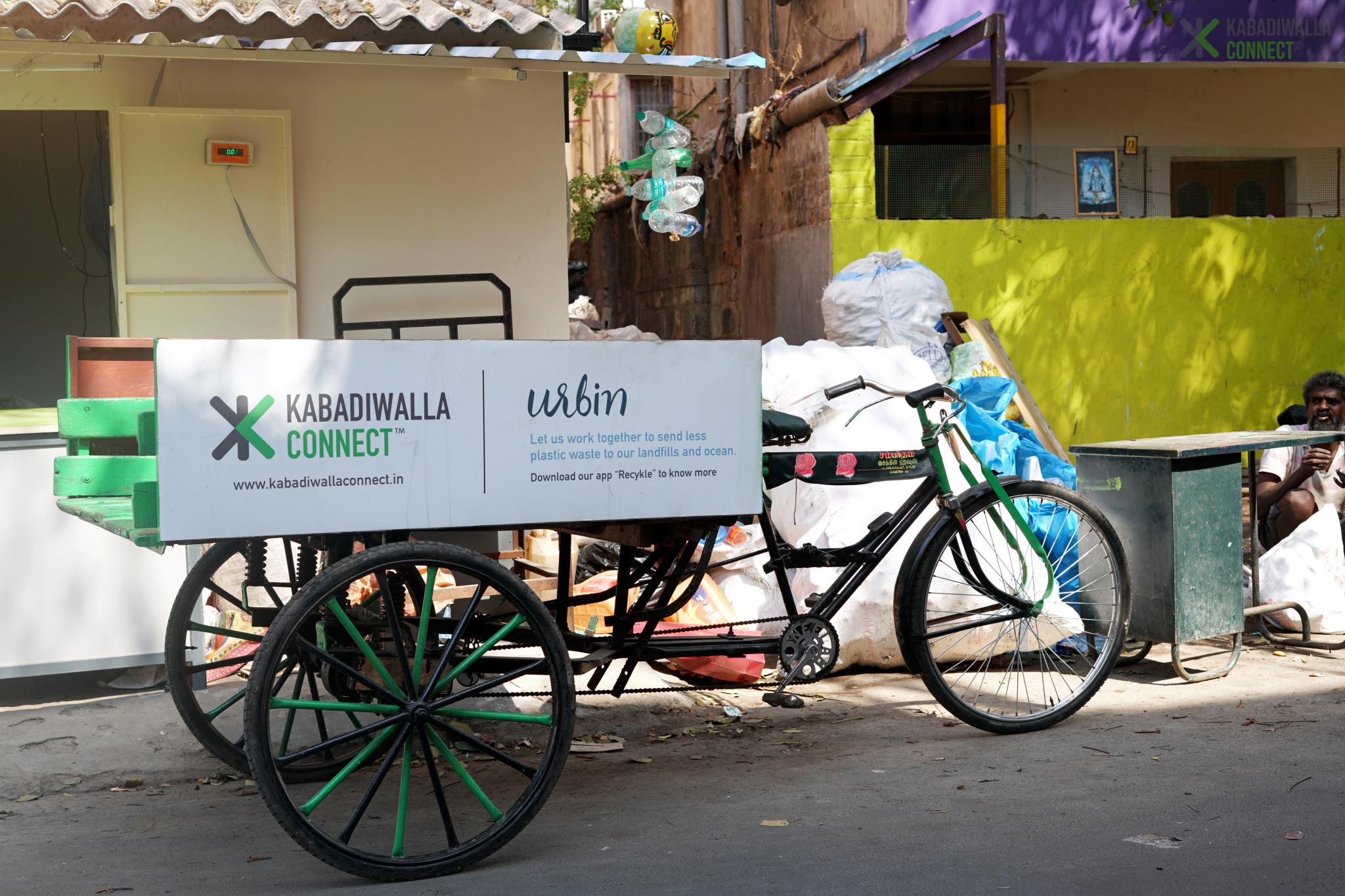
Kabadiwalla Connect’s origin story begins in the late 2000s, during Siddarth’s days as an undergraduate student. “I would take part in beach clean ups in Chennai, most of what we collected would simply end up in poorly managed landfills. So, it was there that I began to engage with the informal supply chain, the waste pickers would collect certain materials and then sell them on to nearby kabadiwallas. From this observation, I was inspired to map the kabadiwallas in my hometown, and what that (informal) ecosystem is contributing in terms of the overall volume of waste collection.” Though he initially leaned towards the PhD route as a way of exploring these questions, he came to see the immense value in commercially integrating wastepickers through a social enterprise. Chennai is the city with highest generation of trash per capita in India, this is due to many factors, namely its rapidly growing urban population and high rate of industrialisation. Waste management is marred by inefficient official collection, poor waste segregation practices and lack of sensitisation about appropriate disposal and recycling. Toke joined the initiative in 2019, “The term Kabadiwalla is context specific, it refers to actors within a broader ecosystem in of India, but what kabadiwallas do and what these stakeholders represent is much bigger, it is relatable and common across parts of the Global South. So, we are trying to ensure collaboration between initiatives and actors in Europe and India, because there is a lot we can learn from each other.”
Based on a report by Kabadiwalla Connect, actors within this informal network can be summarised as follows:
Level 0 Aggregators: Waste-pickers who collect waste material from dustbins or landfills and have no input cost. Sometimes these aggregators have a method of transportation like a tricycle, which they use to cover a larger area and collect more waste. At times, these aggregators collect directly from the households as well. They have no storage space of their own.
Level 1 Aggregators: Known colloquially as kabadiwallas in India, they consist of aggregators who own a shop where they collect, store and minimally process waste material bought from Level 0 aggregators, households, apartments and small businesses. They typically set up shop where they can be guaranteed a constant supply of post-consumer recyclable waste — either in residential areas, near industry or the landfill. They typically buy all material that they can be sold later on. In urban India, kabadiwallas typically buy many types of paper, glass, metal and plastic. They generally sell all this material they collect to a Level 2 aggregator or in some cases a larger Level 1 aggregator in weekly or biweekly cycles.
Level 2 Aggregators: Stakeholders who primarily buy material from Level 1 aggregators and bulk generators of recyclable waste. To be viable, they have to be able to store much larger volumes of recyclables, which they sell to processors in weekly or monthly cycles. More specialisation with regards to material valorisation is typically found at the Level 2 aggregator level, either with regards to segregation and/or pre-processing.
For more details on these stakeholders, access the full report here.
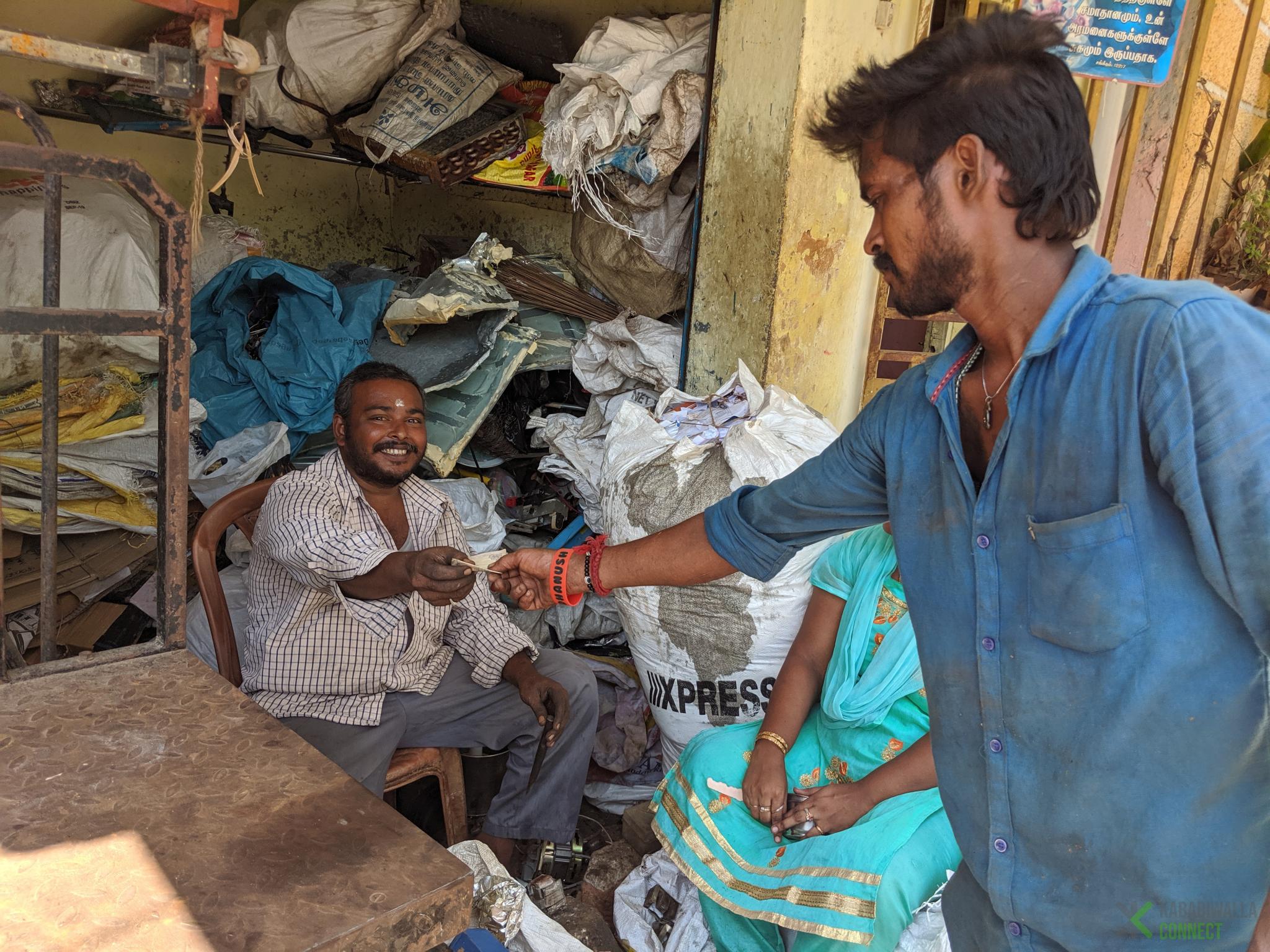
Working within the Informal: Realities, Challenges, and Opportunities
In India waste management falls under the Ministry of Environment, Forest, and Climate Change (MoEF&CC). In the 2016 Solid Waste Management (SWM) rules the MoEF&CC recognises the role that informal waste pickers play in waste reduction, and advocates for their inclusion within formal municipal structures. The policy shift in 2016, recognizing the pivotal role of an estimated 1.5 million informal waste pickers, marked a significant step forward. These level 0 or primary waste collectors, often overlooked, were acknowledged for their crucial contribution to waste reduction. The magnitude of the informal waste picker population underscores the complexity of the challenge at hand – while the policy change is a significant step forward, it is uncertain how it will translate into tangible differences or those who depend on waste picking as a livelihood. And indeed, so far this recognition has not necessarily translated into tangible differences. Despite being crucial actors within urban waste management, level 0 –primary waste collectors- continue to work in unsafe and unsanitary conditions, often fall victim to exploitation from stakeholders further up in the value-supply chain, and face stigma due to their occupation. Waste pickers, often belonging to lower castes, face deep-seated societal stigma and discrimination, rooted in historical divisions of labour.
As Toke explains: “It is one thing to recognise that a group exists, that is different from recognising the need to interact with them. The next question is how to actively engage with them on their terms. A key principle for us is recognising their capacity and their way of working because they have their own language and their own system which may not be easy to understand from the outside looking in, but that is what we have to engage with in a bottom-up way. It is not about encouraging the growth and resilience of this sector and a form of integration on the right terms to make the social and environmental impact.”
Mapping across Urban Geographies
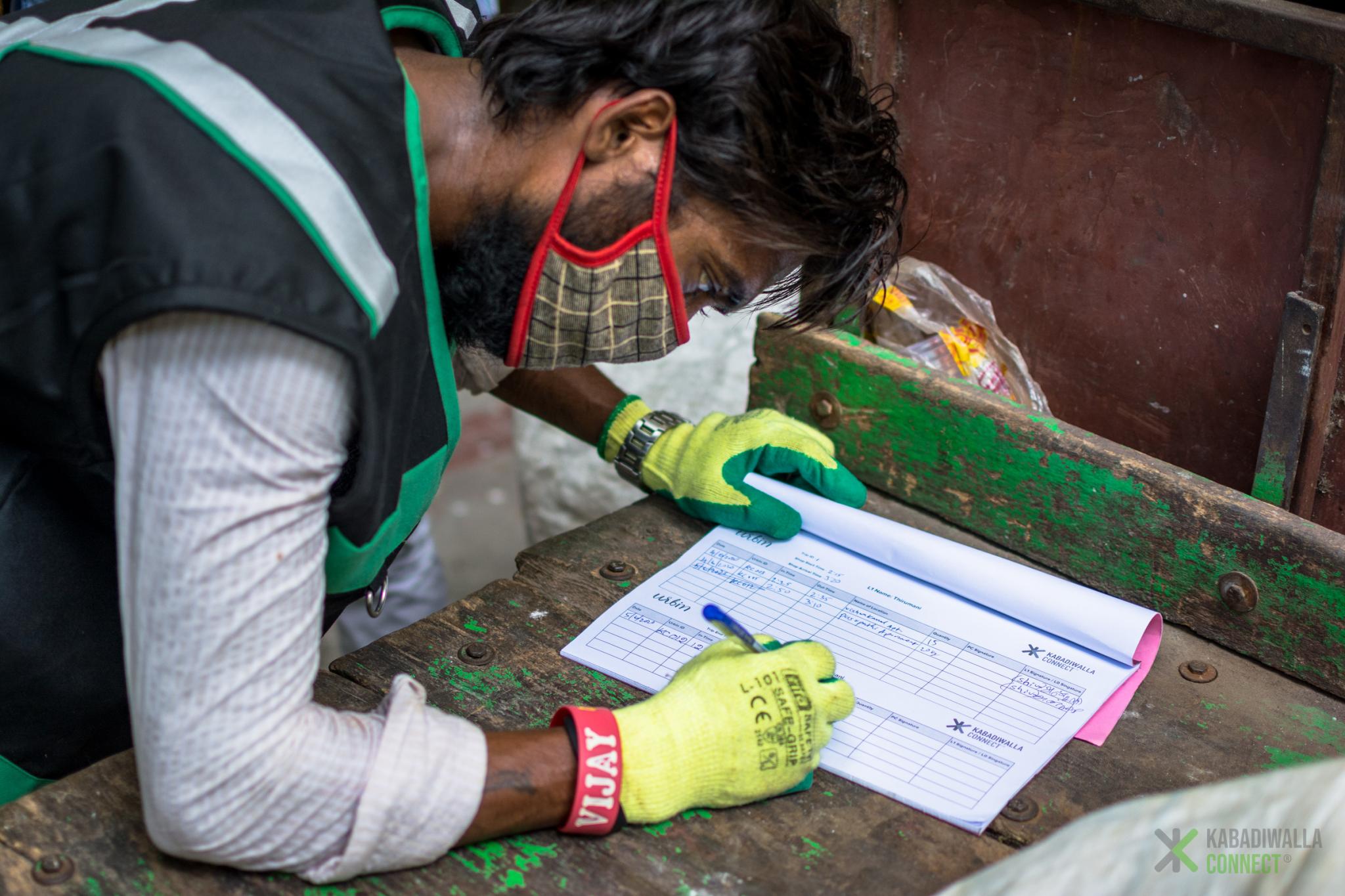
The murkiness and nuances within informal systems and networks can be difficult for outsiders to grasp, this reality fully shapes the approach taken by this initiative, Siddarth outlines their approach saying that:“...what we find in the current informal supply chain, this network of waste pickers, small scrap shops, and larger informal material facilities, is that they are the primary driver of recycling collection in the Global South. Where municipalities are struggling the actors in the informal sector are really building a circular economy and a serious supply chain that procures a lot of material back from the city. So, the first starting point of the inclusion for us is really identifying and valuing the key members of this supply chain, which isn't happening right now. It all starts with mapping.”
Their process can be outlined as:
1) Enumeration/ mapping
2) Digitalisation
3) Sourcing
4) Municipal Collection
Transparency and traceability of material flow are important to ensure that there is double accounting of the costs and materials sent for recycling and for avoiding leakage of material within the system. As Sid points out “Once you have the data you can plug into the larger networks like NGOs, CBOs, and even government, there are programmes and schemes run by the government like free health insurance that can really transform the lives of wastepickers. The digitalisation component is also particularly important because it helps you to track and create an environment where stakeholders are able to get money from the procurement activity itself.” Where important stakeholders and entire areas are not reflected in maps, municipal services continue to fall short of their targets and the space for advocacy and empowerment remains limited for vulnerable communities, such as L0 stakeholders.
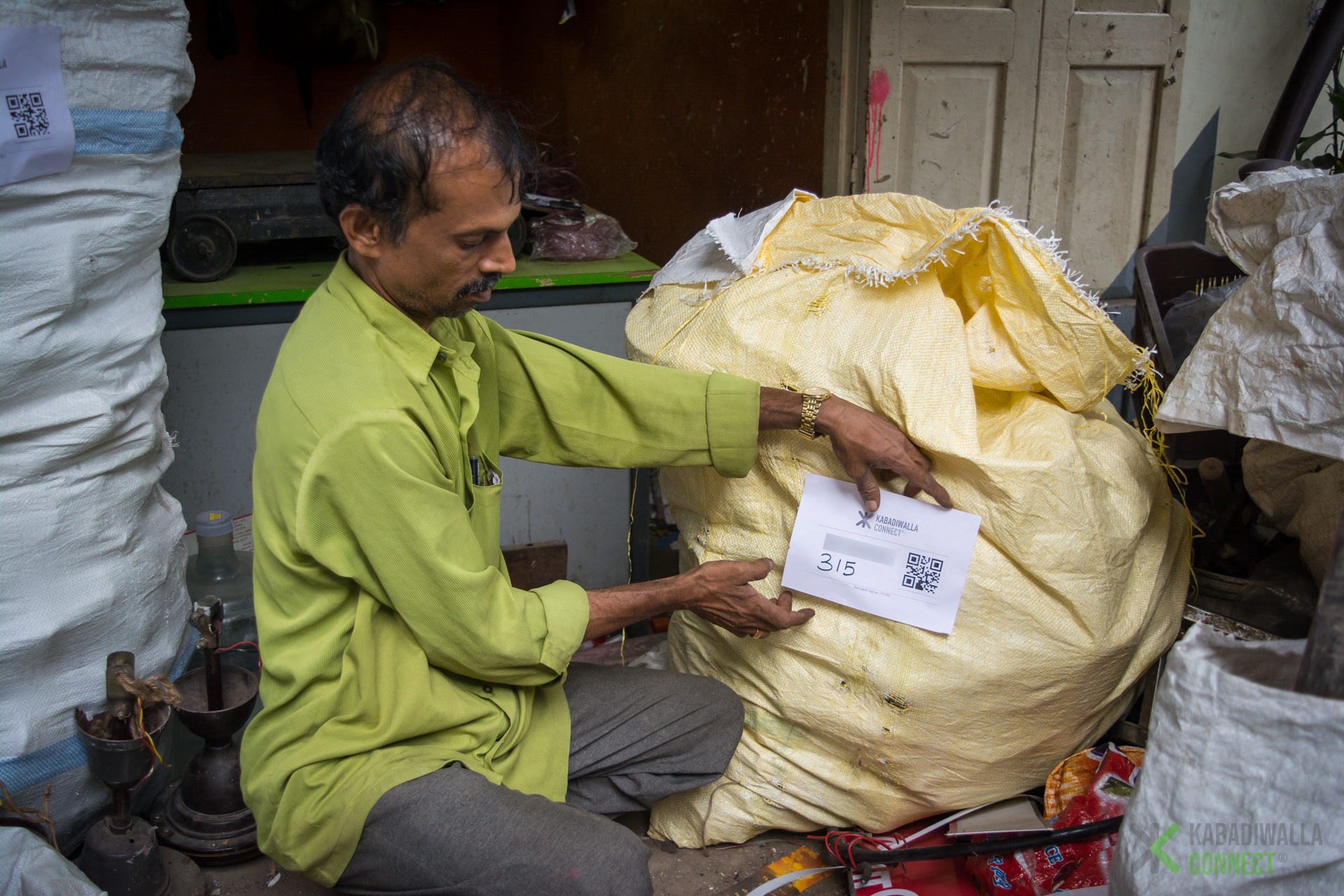
Toke also speaks to the political dimensions and implications of mapping: “When we talk about mapping, there is a real power behind maps as political tools, and it matters who is drawn onto a map and how they are included on a map if at all. So, this idea underpins our work, addressing the power imbalance in mapping, and who is being included based on which data. We have set ourselves a mission to go out and map more cities within the next five years to demonstrate how this sector is out there from Jakarta to Hong Kong to Lagos, we want to show how it is working and what can be done with it in relation to the public and private sector. Once you start getting that flow of data you can have evidence-based insights to show its effectiveness.” Of course, mapping out the informal is not without its challenges. Mapping actors in informal spaces –and the spaces themselves- is challenging due to the dynamic and unstructured nature of these environments, diverse and often hidden activities, as well as issues related to trust, technology gaps, and rapid urbanisation.

Amidst these challenges, Kabadiwalla Connect emerges as a beacon of change, reshaping the narratives around waste management and informality whilst working in sync with informal stakeholders and systems. Their journey, driven by a data-centric approach, maps the uncharted territories of informal waste systems and valuing the unsung heroes behind waste reduction in urban spaces. For more on the initiative click here
